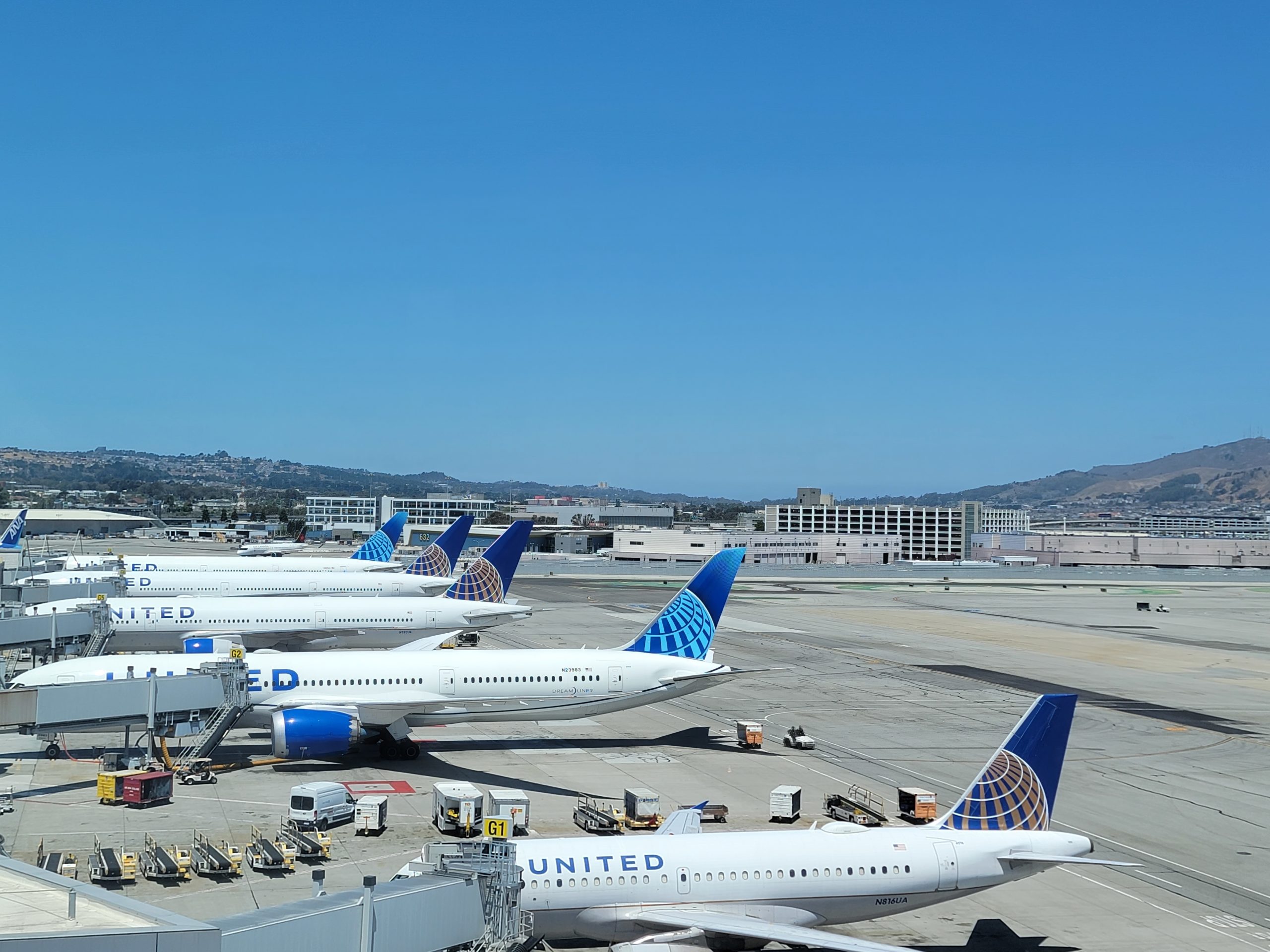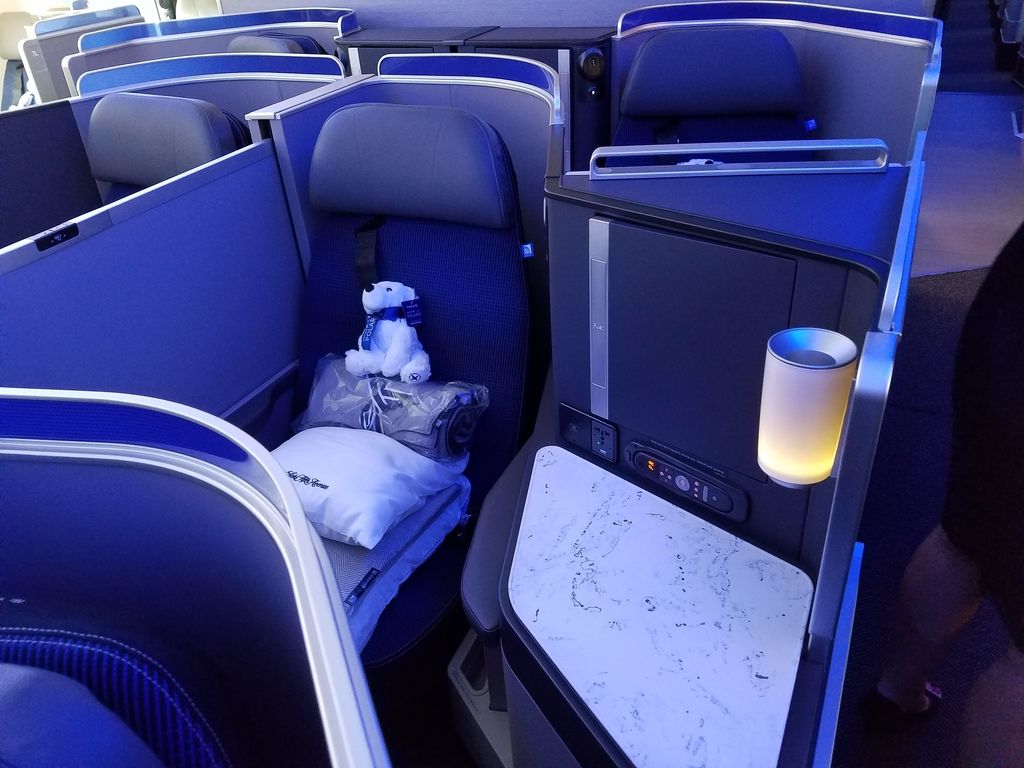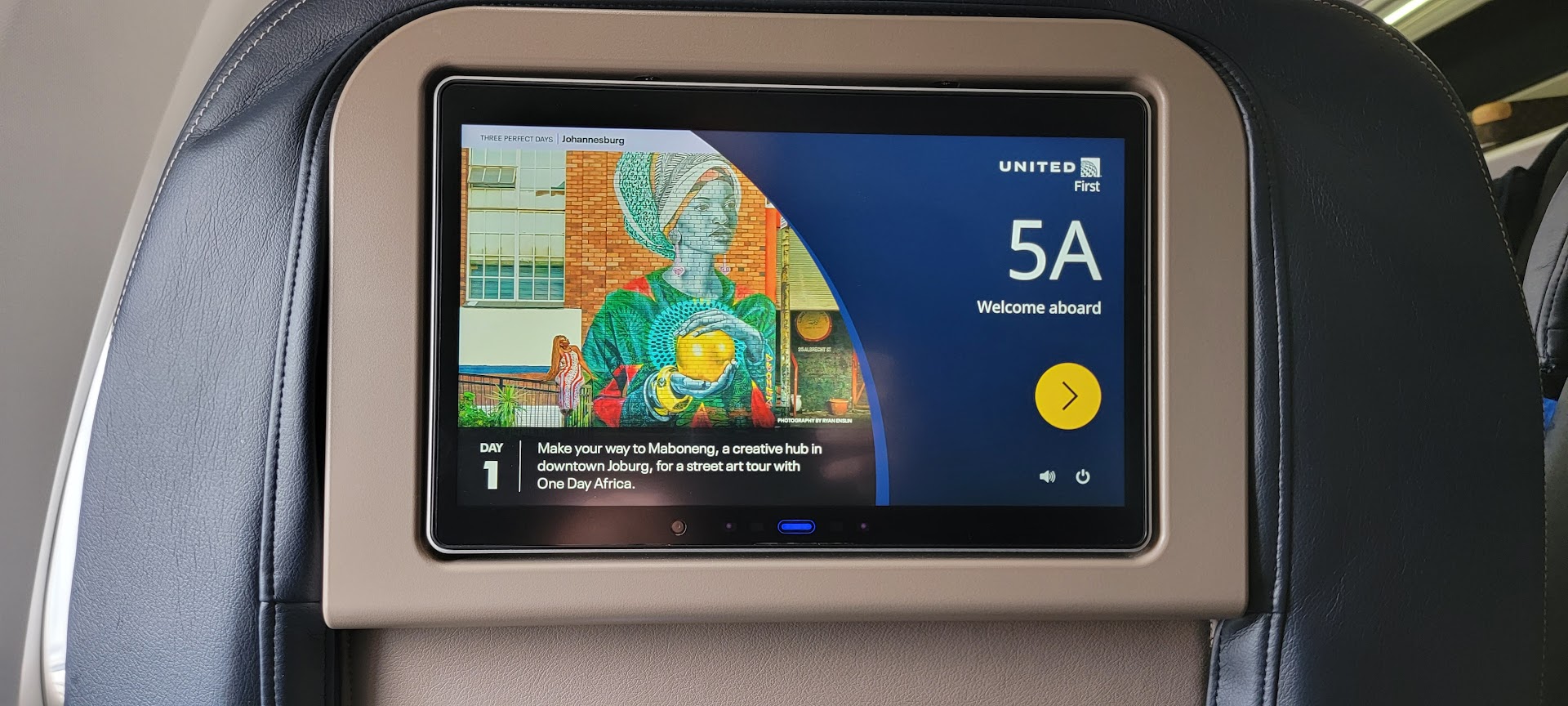United Airlines CEO Scott Kirby laid out the competitive landscape of the airline industry for his employees. Live and Let’s Fly reviewed the video. United is doing well, Kirby is overly optimistic. He offers important insights but the path is far more fraught for the airline than he lets on.
Kirby laid out Delta, United, and Alaska as equally profitable – he adjusts the numbers to get there – American as break-even and then everyone else as money-losing even without recession. Aviation watchdog JonNYC shares this slide from Kirby’s presentation:
UA: pic.twitter.com/hGmoQzwmHb
— JonNYC (@xJonNYC) August 14, 2024
And he says Spirit Airlines could be going out of business:
[T]he low-cost carriers are just a disaster. These are going-out-of-business numbers for a number of these airlines. You look at Spirit Airlines for example at -30%. That’s a number that is hard to put in context. But if you thought about that at United, if we had a -30% margin, it would mean we actually lose $4.5 billion in a single quarter.

The low cost carriers have faced several headwinds:
- They’ve become less low cost. They pay the same for fuel as everyone else. Labor has gotten more expensive.
- Consumer preferences have skewed more premium. They haven’t had the products people have wanted to buy. Even where they’ve been able to sell their seats, it’s been at a discount, while other airlines have earned a premium. We don’t yet know whether this lasts. There was intertemporal substitution coming out of the pandemic and strong consumer balance sheets. We’ll have to wait for time and recession to show whether the shift is structural.
- People have wanted to travel abroad. Where low cost carriers do international, it’s to Mexico, Caribbean, and close-in Latin America.
United and Delta are the most international-focused, and also the big airlines that have been profitable. American relies on partners for much of its international, having retired their Airbus A330s, Boeing 767s and Boeing 757s during the pandemic – they haven’t had the planes to fly long haul (Boeing delivery delays aside) and their strategy has been to eschew widebodies in any case.
Kirby acknowledges that margins are down even for United and Delta – without recession. Everyone complains about ‘too much capacity’ which is another way of saying that the number of seats in the market has led to discounting while costs are also up. Pilots are making more. Mechanics are making more. Flight attendants are making more (and soon will at United, too). This underperformance is even before any recession.
He says that recession doesn’t matter… but only for employee’s jobs. And here I’m skeptical.
First, we have set United up with the goal that we will never again have a systemwide furlough at United Airlines. And we’ve done that, I’ve talked about that before, by carrying more cash on the balance sheet, by being at the top of the industry in profit margins, and by continuing to pay down our debt. We’ve still done those things.
Is he really saying that just because United has cash they’ll spend it to keep employees paid rather than shrinking their workforce? United was behind only American with the world’s second largest furlough during the pandemic. They were ahead of all other airlines in planning for a collapse in air travel at the start of Covid.
More broadly, United is certainly exposed to recession risk. Their huge aircraft orders might be deferred at some cost, but come with significant capital expense. In the past Southwest and then Delta had the strongest balance sheets. United is not in the same financial position that Delta is. While they’re stronger than they were in 2020, they built a plan for significant growth – and international exposure.
I don’t put much stake in his claim that United will stick to its growth plan in the event of an economic contraction which leads to a downturn in air travel.
[A]s we now head into what may be a difficult economic environment, we’re in a position to keep our plan, to keep focused on United Next, to keep growing, to continue hiring people, really to stay the course, while the rest of our competitors are the ones, in this case, that are having to start shrinking.
Almost across the board, those airlines on that previous chart are starting to shrink. Almost across the board, they’ve stopped hiring or many of them have already started to furlough employees.
What sets United apart?
- Increasingly it is not MileagePlus. They’ve been devaluing their miles consistently over the past four years. There are too many elites for the benefits that they can deliver.
- It’s not the on board product. They’re bringing it up to par. The business class seat is good enough, but not a differentiator, bedding is very good but the rest of the soft product isn’t. Their domestic product is adding seat back screens and better wifi, to become competitive with Delta and JetBlue.


- It’s not service. Alaska, Southwest, and Delta are all generally friendlier than United crews, although there are some great crews and generally better than they were in the Smisek days (Oscar Munoz really did contribute here).
- They do have better technology that leads to good customer experience – a better mobile app, better automated communication with customers during delays, and better ability to hold plans for connecting passengers when doing so won’t cause delayed arrivals for everyone else (“ConnectionSaver”).
- Ultimately it’s their network – upgauging domestically, and transporting passengers Globally. United is part of the largest global alliance and will take you more places around the world than other U.S. airlines.

United is a better airline than it was a decade ago, with a frequent flyer program that isn’t as good as it was a decade ago. They have a clearer strategy – it’s one that can certainly win, but it’s not without risk. It assumes continued growth in air travel in the United States and from the United States to the world. But the question remains whether the world will remain on a trajectory of ‘up and to the right’ or whether United can improve financially fast enough to weather disruptions in that graph along the way.


I’m exclusively a United flier and 1K. The only thing I hate about them is the hard line approach to zero flights that do not involve a hub. Like there are zero other than like 2 random flights out of Cleveland to international destinations.
While I understand the hub/spoke method, surely a few spoke to spoke regional flights would work, even if they’re just served by SkyWest if you could sell the seats.
That’s the thing I like about Delta they’re more pragmatic, and offer spoke to spoke flights when there’s demand and they make sense.
Spirit has a market cap of only about $280 million. That’s about the same value as a dozen or so a320neos would cost on the open market (I don’t have a breakdown of leased vs owned, but that will matter). With a fleet of ~210 planes, the airline is worth a lot more at auction vs. alive. DOT already indicated they won’t allow a merger. When they go belly up, there will be a lot of demand for their assets and pilots.
The ULCC are doing the only thing they can do. Try to become more like a legacy airline and attract a higher end consumer. This has proven the sell them a really low fare, squeeze them in like chickens on a flat bed truck going to market and nickel and dime them for fees the consumer won’t know about strategy isn’t sustainable. It blows my mind the number of people on netters that think Spirit and Frontier just needs to order a massive number of 321neos and pack them with $49 fares will return the airlines to profitability. Make up for individual losses by selling volume???
Ultimately the recent changes are more flyer friendly but I don’t see how those changes restore profitability unless both Spirit and Frontier find passengers that are willing to spend more money on an airfare.
@ Gary — Love NK…
We keep hearing that that there is over-capacity in domestic seats – not on any flight I have been on (other than a few regional jet flights) this year. I mostly fly UA (1K) and AA (EXP).
Well, it’s all nice to have him say this but of course, he is going to show how awesome he and United are. It’s not like he is going to do a presentation and say “Oh and Spirit is doing great, we wish we could get our crews to be that nice”.
Figures may not lie but, liar’s figure. This is the old saying that has stuck with me for many years. In other words, you could make his estimates come out however you wanted if you tried hard enough. It’s why JD Power exists.
United is alright. They could be better.
United is not premium.
Is there room for two premium airlines? If that happens then we’ll probably have two Timmy D’s.
Scott Kirby has spent the last 7 years telling us that he would be on par w/ Delta. For the most recent quarter, he achieved it in terms of profits.
He doesn’t tell you that his flight attendants have not had their pay increased – which is true for AA and now based on Gary’s latest story – also not true for AS.
So half of the capacity in the US airline industry still is operating with less than industry standard wage rates for one or more large labor groups.
And, no, UA will not keep growing at the rate it wants to – and has not been able to achieve – while other carriers in the US and overseas will grow internationally.
What an awful industry to be in. Highly unionized, exposed to significant risk factors like macro economy, commodity price and foreign currency fluctuations, world politics, terrorism, at the mercy of a oligopoly of airplane manufacturers, highly regulated and overtly politicized, etc etc etc. And your reward to put up with all that? Ridiculously low margins industrywide. Low margins are not a characteristic of a monopolistic situation of course…so this admins habit of blocking mergers is nonsensical.
Don’t cry for the airlines, because when the next recession hits, you can count on them gety massive bailouts as usual.
Kirby’s right about United’s relative position in the short run. But in the long run the competition, especially the ULCC, will make adjustments that will enable them to counteract United.
Specifically, United’s value proposition to premium FF is the size of its network. Some of the adjustments to be made in the future will include ULCC consolidation and network alliances to give the spirit and Southwest’s a competitive answer. Perhaps one world alliance.
United’s revenue premium is what Kirby is banking on to subsidize the low margin routes he plans on taking from the competition who can’t afford to operate said routes anymore. That premium comes from premium hub flyers and the international supply / demand imbalance. Short term yes, long term those imbalances will be resolved with declining international demand and more capacity. Domestically, the LCC competition will chip away from their “premium hubs” for domestic passengers as part of the LCC recalibration of their network and premium seating and other offerings.
Remember, Covid was a major pothole, or atmospheric disturbance, in the macro economy and airline industry. Recalibration takes a few oscillations but equilibrium will be achieved in due time. The supply/demand imbalances of the last couple years are ending. Capacity control will be required soon, especially from United.
United is simply the best in almost all areas – best hubs, best network, best technology.
…And yes, best mileage program as well. Sure, it’s been nominally devalued – but so have virtually all other airlines’ programs. And with Mileage Plus, you can earn and burn within the biggest alliance, all with no surcharges at all and with no redeposit fees.
@marco
You sound like a fanboy. Don’t let your emotions cloud your understanding of the market.
I can grant you that United’s app is ahead of the game but nothing that they do on there is proprietary patented technology that the others can’t replicate, and will do soon.
In regards to bases / network, best is subjective. If you think having the smallest domestic network with hubs with the most competitive pressure, then sure.
International network, sure. But remember, in normal times the trans oceanic markets have always been heavily competed with limitless competitors from the other side of both ponds. The recent profitability comes from supply/demand imbalances that will correct itself soon. International profitability will flatline eventually, like it has historically.
The key to long term profitability and success comes from winning the domestic market, thanks to cabotage laws preventing foreign competitors and the barrier to entry in the domestic marketplace.
If you look at having hubs in the most populous markets across the country, AA has the most exposure. Of course they’re not the most profitable, exemplifying that best comes down to execution and a bit of luck from government decisions and bailouts.
United has one Sunbelt hub. Houston. And that hub doesn’t have great geographical location. This is a very big long term problem, because that’s where the money in America is moving to,.
UA is currently benefiting from it’s international focus. That may or may not be wise — it’s impossible to predict. But there is absolutely nothing stopping American from doing exactly the same thing in the medium term if it wants to. And, obviously, Delta will expand its int’l presence as it sees fit, too.No one seriously believes UA’s brand is materially better (I’m a 1K and I don’t believe it whatsoever). UA’s EWR hub is obviously quite valuable, but it’s not THAT unique or special. AA imminent deployment of A321xlrs from Philly is likely to have a negative impact on EWR profitability since PHL is an easier and more reliable airport to transit.
My take is that United made domestic first class into the equivalent of the Big Front Seat on Spirit. Well except for the snack basket (which Spirit is planning to introduce). It’s crazy to me that United actually offers so few meals on domestic flights. Especially considering that airlines in Europe and Asia can do so on similar short distance flights.
Internationally I’d rather fly almost any other airline than United because the crews tend to be nicer, more professional, and the food is, with rare exception, much better. Fortunately other airlines also tend to be less expensive than United especially for Florida can get me there faster coming from Europe.
I wonder if Kirby considers the ‘no furloughs’ approach as a buying out people past retirement or who are willing to take a package to leave, achieving a downsizing through that type of process vs. actual lay offs. They did a lot of that during COVID, offering generous leave packages for anyone willing to walk out the door, reducing the number of people they cut without any benefits.
I agree with Romney, the ULCC’s strategy reminds me of “Lucy Ricardo” and “Ethel Mertz” trying to sell their home made salad dressing. “Ricky Ricardo” notes that they loose 10¢ on the $ but Lucy’s comment was, “But we’ll make it up on volume!”
When the innovator becomes the imitator, it’s time for a new plan . . . and management.
This is the first comment I’ve seen about ulcc and their new labor agreements. It has been my question. Does the ulcc work without the pilots have a seriously sub par contract? It seems swa, sprit , Frontier and Jet blue now all have basically close to par pilot contracts. It also seems that’s the timeframe they started loosing money. Does the ulcc model only work off pilots willing to work for much much less?
Comments regarding United’s domestic weakness has been known to Kirby since he took the helm from previous leadership that created that position. His COVID plan and early in aircraft orders were all correcting that position. The widely known aircraft order delays have been a godsend in some degree, but it has significantly delayed his plan while still growing share. But this is affecting all carriers and it doesn’t change United’s very early orderbook compared to peers. They are coming and they will continue to correct that domestic gap.
As weaker airlines drop their orders, it advances United’s position and provides opportunities for additional purchases at better market pricing. Delta shares this advantage to a lesser degree, but AA is well behind the curve in their order book positions and deliveries. Internationally, AA has lost first player advantage to new markets. Also, a OHL comparison to EWR ignores the NYC market pull and O&D advantage.
Should Spirit fail, that could open up a hub opportunity in the sunbelt (Fort Lauderdale) without a merger. Explains Kirby’s interest and comments.
Tim Dunn remarks that Kirby has long stated his goal to overtake Delta. He remains true to his word as each quarter passes. Delta’s slipping has been the unexpected surprise.
I just can’t comprehend why Kirby hasn’t fully sorted Polaris meal quality and service levels. Yeah, supply issues and all, but that was years ago now. Are you really committed to making United a Premium carrier as stated?
Most Sprit customers are first time travelers on the carrier. With 220 seats on an A321, legroom ceases to exist. They missed the mark in several areas I’m afraid.